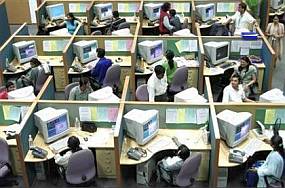I think most Christians are overburdened.
 Beyond needless guilt and shame that were instead eliminated forever by Christ’s finished work on the cross (“Christian, you are free!”), I think too many of us are crushed under the weight of all the religious work we think we must do—and some religious moralists can’t cease telling us we should be doing.
Beyond needless guilt and shame that were instead eliminated forever by Christ’s finished work on the cross (“Christian, you are free!”), I think too many of us are crushed under the weight of all the religious work we think we must do—and some religious moralists can’t cease telling us we should be doing.
When you examine the actual lives of Christians in the early Church, little is said about what ordinary Christians actually did. Sure, the apostles seemed to be active and involved in missionary voyages and church management stuff, but for the most part, Joe Christian just went about his daily tasks.
Daily being key.
Jesus showed his disciples to pray thus:
‘Our Father in heaven,
hallowed be Your name,
Your kingdom come,
Your will be done,
on earth as it is in heaven.
Give us this day our daily bread,
And forgive us our debts,
as we also have forgiven our debtors;
And lead us not into temptation,
but deliver us from the evil one.’
— Matthew 6:9b-13
What was the bread? Today’s.
Later in that same chapter, Jesus adds this in verse 34:
“Therefore do not worry about tomorrow, for tomorrow will worry about itself. Today has enough trouble of its own.”
What is the focus on? Today.
He also said this in Luke 9:23:
“If anyone would come after Me, he must deny himself and take up his cross daily and follow Me.”
When is that cross taking-up? Daily.
The more I study the Scriptures and live them out in this life, the more I am struck by the truth that what God asks of us is to live in today. Leave tomorrow to tomorrow.
The immediacy of the Christian life is an attention to this moment, this present, this person before us, this situation now, and these resources we have in hand. By forcing Christians to live in the present moment, God becomes more real, and our dependence less on what we have stored up and more on what He can do through us, despite our lack of preparedness.
This is not to say that Christians should never prepare. Only that our preparedness be rooted in the now, in the daily putting of one foot in front of another based on where God is leading us at this present time, even if we cannot see the desitnation. That is the essence of walking by faith, not by sight.
What we can always do in the moment:
- Pray
- Love others
- Have a good word at the ready
- Use our spiritual gifts
- Use our natural gifts
- Commune with the Lord
- Be faithful
You and I can always do those things. And we should always be ready to do them.
But beyond that, we can say little about where we will go and what we will do.
In many ways, what I have learned of God is that He expects nothing more of me than the use of the natural and spiritual gifts with which He has given me, used in conjunction with the resources currently before me, for the purposes He has put before me in this moment. When viewed that way, the life of the Christian gains an immediacy that keeps us rooted in the present and the now God has placed us within. So much of the weight of doing great things for the Kingdom falls by the wayside in light of the immediacy of what is before me at this second.
The cashier at the grocery store who seems harried—can we speak calm joy into her life in this present moment?
The elderly women who can’t wrestle the bag of cat food into her car—can we do it for her?
The youngster who is crying—can we listen to her story?
The door left open on that person’s car—can we close it?
The customer service rep who deals with hotheads all day—can we be the one respite of peace in his day?
The angry arguers—can we be the mediator of their battle?
Can we?
And what about our own families? In what ways are we serving them in the present? In the little things. In what way is doing our job well a help to them? Or attending to their needs in the now?
I find that so many of us Christians are so geared to do ginormous things for God that all the little things right in front of us go ignored and forgotten. And yet that is sometimes the only thing asked of us.
Amid all this doing is grace. God is full of grace for us, his broken, flawed, clueless people. He is always giving us opportunities, and sometimes we get them done right, and other times we blunder on. He loves us nonetheless.
Christian, I believe that what God asks of us is simply to live in the here and now. The day’s own trouble is sufficient for the day. Do what you can in the moment with what you have been given, and do not second guess or lament missed opportunities. You are dust. That dust can do anything at all is miracle in itself.
Rest in God. Lay down all your troubles. Do what you can, when you can, with what you have, and leave the rest to God. Know grace. Be at peace.

 What’s the most commonly used phrase in job postings today? I’ll cast my lot for fast-paced environment. It’s ubiquitous, a badge of corporate honor. Businesses stopped pushing the blender’s Stir button and progressed with boasting to Liquify.
What’s the most commonly used phrase in job postings today? I’ll cast my lot for fast-paced environment. It’s ubiquitous, a badge of corporate honor. Businesses stopped pushing the blender’s Stir button and progressed with boasting to Liquify. Still, in my listening to his two-part series recently rerun, I feel even philosopher/ apologist Zacharias seems ill-equipped to explain purpose amid our societal/cultural norms. The “how to live out that purpose practically” eludes even him. (Perhaps it’s because the talk was from 1992. I wonder how Zacharaias might speak about purpose in a more digital age.)
Still, in my listening to his two-part series recently rerun, I feel even philosopher/ apologist Zacharias seems ill-equipped to explain purpose amid our societal/cultural norms. The “how to live out that purpose practically” eludes even him. (Perhaps it’s because the talk was from 1992. I wonder how Zacharaias might speak about purpose in a more digital age.)